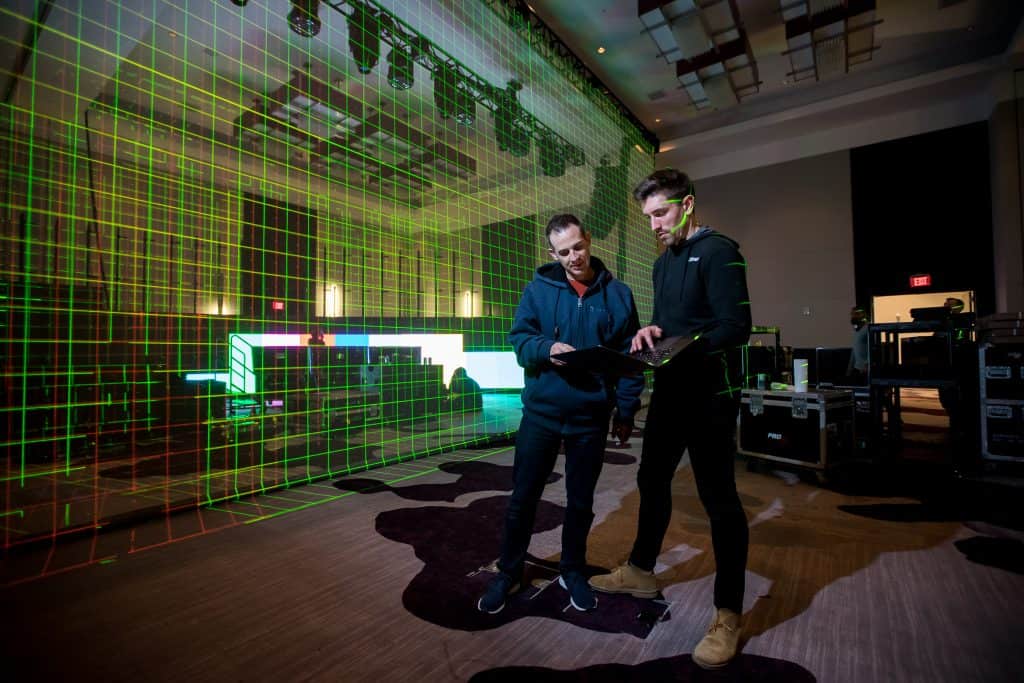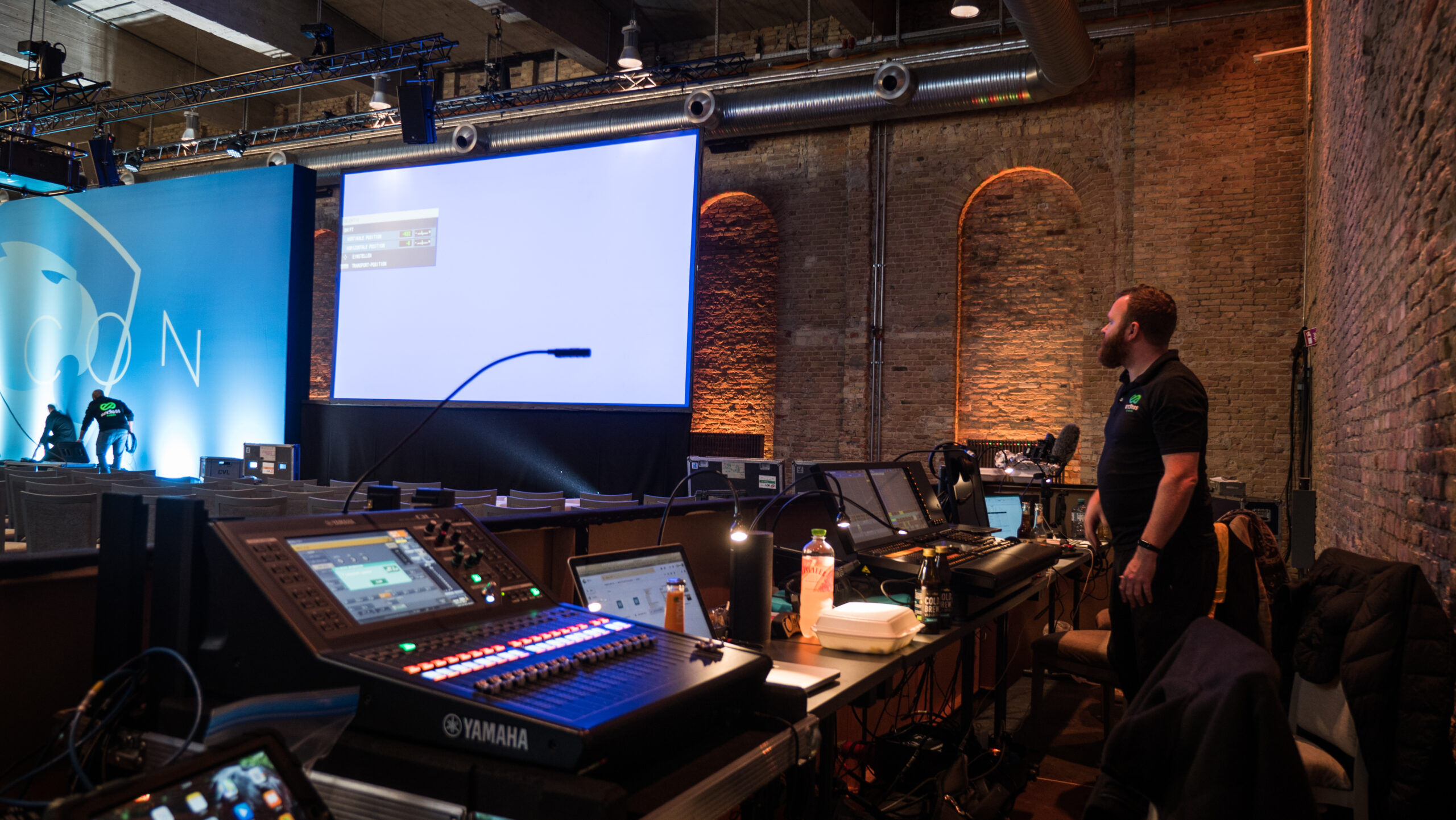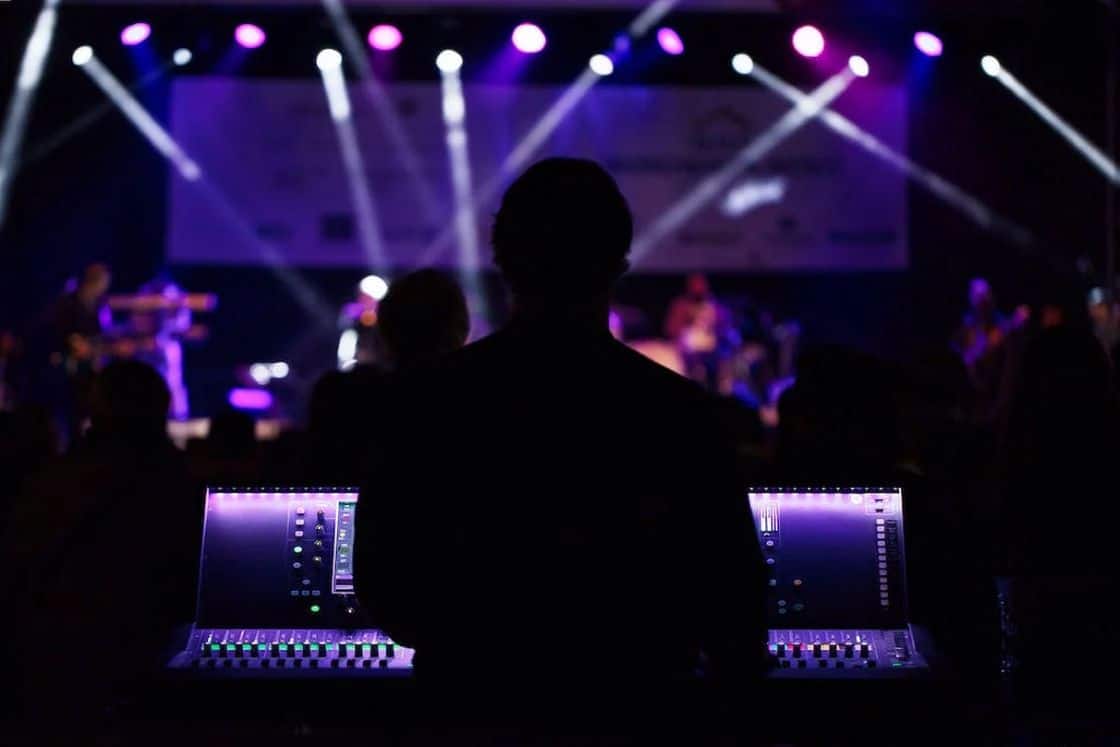Recognizing Event Production: Why It Is Very Important for Effective Gatherings
Event production plays a vital duty fit effective gatherings. It includes mindful planning, control, and execution to ensure every detail aligns with the event's vision. This process not just enhances attendee experiences but additionally promotes purposeful connections amongst individuals. Recognizing the complexities of event production can significantly influence the total outcome. What are the crucial elements that add to an effective event, and just how can they be effectively handled?
The Function of Event Production in Developing Remarkable Experiences
Although numerous elements add to the success of an occasion, event production plays a crucial function in crafting memorable experiences. This complex procedure encompasses numerous aspects, consisting of preparation, logistics, and execution. Reliable event production guarantees that every information lines up with the total vision, producing a seamless circulation that astounds participants. By coordinating timelines, handling resources, and managing technical aspects, event producers establish a foundation for impactful experiences.Moreover, they curate settings that resonate with the target market, improving interaction and emotional link. From picking appropriate locations to integrating innovative technology, the selections made throughout production considerably affect how attendees regard and bear in mind the event. By prioritizing high quality and focus to information, event production transforms common celebrations right into remarkable minutes, leaving enduring impressions. Ultimately, the proficient orchestration of these parts defines the significance of an occasion, showcasing the significance of specialist event production in accomplishing exceptional results.
Secret Components of Effective Event Production
Effective event production depends upon several vital components that assure success. Planning and control develop a strong structure, while technical configuration needs deal with logistical needs. Additionally, implementing audience interaction strategies improves the total experience, making the event memorable.
Planning and Coordination
Planning and sychronisation work as the backbone of effective event production, making sure that every information lines up effortlessly to produce an unforgettable experience. Reliable planning includes developing a clear vision and objectives, while control requires the precise organization of logistics, schedules, and sources. A distinct timeline is vital, directing all stakeholders with important turning points and tasks. Communication plays an essential duty, fostering partnership amongst group participants, vendors, and venue staff. Regular meetings and updates help to deal with difficulties quickly, making sure that every person continues to be straightened with the event objectives. Inevitably, an organized technique to preparation and sychronisation not only improves effectiveness but also significantly contributes to the overall success and enjoyment of the event for attendees and coordinators alike.
Technical Arrangement Needs
An effective event depends heavily on its technical arrangement needs, which include vital elements such as audio-visual equipment, lighting, hosting, and connection. Audio-visual tools includes microphones, speakers, and projectors, making sure that discussions and efficiencies are supplied clearly. Appropriate lighting boosts the atmosphere and highlights essential areas, while presenting gives the essential platform for audio speakers and performers. Connectivity, consisting of Wi-Fi and electrical accessibility, is essential for smooth communication and modern technology combination. Each part must be carefully prepared and executed, customized to the event's certain needs. Inadequate technical configurations can bring about interruptions, adversely affecting the overall experience for participants, underscoring the relevance of extensive prep work and focus to detail in event production.
Target Market Interaction Approaches

The Value of Planning and Sychronisation
Planning and sychronisation are important to the success of any kind of event production. Effective timeline administration, source allocation strategies, and team communication dynamics play crucial roles in making certain that all aspects collaborated seamlessly. Without a structured approach to these elements, events risk facing delays, budget plan overruns, and miscommunication amongst group members.
Efficient Timeline Management


While effective event production commonly depends upon creativity and implementation, reliable timeline administration continues to be an important element that can not be overlooked. A well-structured timeline functions as the foundation of any event, making certain that each phase is carried out in a timely manner. It enables the sychronisation of numerous tasks, from location configuration to visitor arrivals, while avoiding possible bottlenecks. By plainly describing target dates and responsibilities, event coordinators can preserve emphasis and adjust to unpredicted obstacles. Additionally, a thoroughly crafted timeline cultivates interaction amongst employee, promoting liability and collaboration. Eventually, reliable timeline monitoring not just enhances functional efficiency yet likewise adds considerably to the total success and smooth execution of the event, leaving attendees with a memorable experience.
Resource Appropriation Techniques
Efficient source allocation techniques are essential for the successful execution of any event. Proper preparation enables event organizers to recognize and distribute sources, such as funds, employees, and materials, in a manner that makes best use of performance. By assessing the details needs of each element of the event, coordinators can focus on tasks and assign resources accordingly. Sychronisation amongst different divisions ensures that all components, from satisfying audiovisual requirements, are appropriately supported. This calculated approach not just decreases waste however also boosts the total experience for participants. Furthermore, preparing for possible difficulties and having backup plans in position permits for smoother operations. Ultimately, effective source allowance adds Recommended Site considerably to attaining event objectives and ensuring a memorable gathering.
Team Interaction Dynamics
Just how can seamless communication among team members change the event production procedure? Reliable interaction is crucial for collaborating tasks, sharing updates, and attending to challenges in real-time. When staff member take part in open discussion, they can quickly recognize possible concerns and create options collaboratively, minimizing delays and misconceptions. This dynamic fosters a cohesive atmosphere where everybody understands their functions and duties, leading to an extra integrated initiative. Additionally, regular check-ins and responses loopholes boost accountability and assurance placement with the event's go to this web-site objectives. By focusing on communication methods, groups can simplify workflows, strengthen spirits, and ultimately elevate the total high quality of the event. Effective celebrations depend upon the capability to communicate efficiently, making it a vital component of event production.
Enhancing Attendee Interaction With Creative Style
Innovative design plays a critical function in boosting participant involvement at events, as it promotes an immersive environment that captivates individuals' interest. By integrating ingenious visuals, interactive components, and thematic decoration, event coordinators can produce memorable experiences that resonate with attendees. Thoughtful format styles promote movement and expedition, motivating guests to engage with displays and each other.Incorporating modern technology, such as augmented truth or live polling, additional enhances the experience, permitting real-time responses and interaction. Additionally, sensory aspects like illumination, audio, and aroma can evoke feelings and create a more appealing atmosphere.The usage of narration through style helps communicate the event's function and message, making it a lot more relatable for attendees. Ultimately, creative layout not only improves engagement but also strengthens links amongst participants, leaving a lasting impact that prolongs beyond the event itself. This calculated strategy to design is necessary for effective events.
Managing Logistics for a Smooth Execution
While the enjoyment of an event can draw attendees in, taking care of logistics is vital to secure a seamless execution. This entails diligently working with various components, from location choice and format to wedding catering and transportation. Reliable logistics management assures that all elements straighten, permitting a smooth flow from registration to the final thought of the event.Additionally, a clear interaction strategy amongst all stakeholders is essential. This includes team, vendors, and volunteers, who have to be educated of their duties and duties. Anticipating potential obstacles, such as devices failing or unexpected weather conditions, can better improve the event's success.Creating a detailed timeline helps keep the group on course and permits timely changes. Eventually, well-managed logistics not just assist in a satisfying experience for attendees but likewise mirror the professionalism and trust and reliability of the organizers, adding to the total success of the event.

The Influence of Modern Technology on Event Production
What function does modern technology play in shaping modern-day event production? Innovation has come to be a foundation of efficient event production, enhancing both preparing and execution procedures. From innovative enrollment systems to interactive apps, innovation improves guest management and enhances interaction. Digital event systems permit coordinators to reach broader read the article target markets, damaging geographical obstacles and helping with hybrid celebrations that integrate in-person and on-line experiences.Additionally, audiovisual innovations, such as high-def screens and stereos, raise the top quality of presentations and efficiencies, ensuring a remarkable experience for participants - event production charlotte. Social media combination enables real-time comments and communication, fostering neighborhood involvement before, during, and after the event. Information analytics tools assist organizers in keeping an eye on individual behavior and preferences, allowing customized experiences that resonate with diverse audiences. In general, the combination of modern technology in event production not just enhances operational effectiveness yet also improves participant experiences, inevitably adding to the success of the event
Assessing Success: Determining the Results of Your Event
Success in event production rests on effective evaluation, which involves measuring a variety of end results to analyze the general influence of an occasion. To accomplish this, organizers can utilize both qualitative and quantitative metrics. Measurable procedures may include participation numbers, ticket sales, and earnings created, while qualitative analyses may entail participant satisfaction studies and comments forms.Additionally, examining social networks interaction and media insurance coverage can offer insights into the event's reach and brand name influence. Comparing these metrics against predefined goals helps determine if the purposes were met.Furthermore, post-event debriefs with the preparation group can discover lessons found out and locations for enhancement. By systematically examining these results, event manufacturers can improve future gatherings, guaranteeing continuous development and success. Inevitably, an extensive analysis not just highlights achievements yet also notifies tactical choices for subsequent events, fostering a culture of excellence in event production.
Frequently Asked Concerns
What Qualifications Should an Event Manufacturer Have?
Event manufacturers need to have solid business abilities, creative thinking, and effective interaction capabilities. A background in job monitoring, budgeting, and negotiation is necessary. Pertinent certifications and experience in diverse event kinds even more enhance their certifications.
Exactly How Can I Decrease Event Production Expenses Efficiently?
To properly decrease event production prices, one can streamline vendor option, negotiate agreements, use internal resources, focus on necessary components, implement innovation for performance, and explore sponsorship chances to counter expenses without jeopardizing high quality.
What Are the Usual Challenges in Event Production?
Typical challenges in event production consist of spending plan restraints, logistical control, supplier monitoring, time constraints, attendee engagement, technical difficulties, and unexpected conditions - event production charlotte. Each variable can greatly impact the overall success and smooth implementation of the event
Exactly how Do I Select the Right Location for My Event?
Choosing the best location involves taking into consideration aspects such as area, capability, services, and budget plan. Furthermore, evaluating ease of access and ambiance guarantees the picked area aligns with the event's goals and enhances the general attendee experience.
What Is the Regular Timeline for Planning an Event?
The typical timeline for preparing an event differs, yet usually consists of stages such as concept development, venue option, supplier sychronisation, promotion, and last preparations, typically spanning numerous months to ensure a successful implementation.